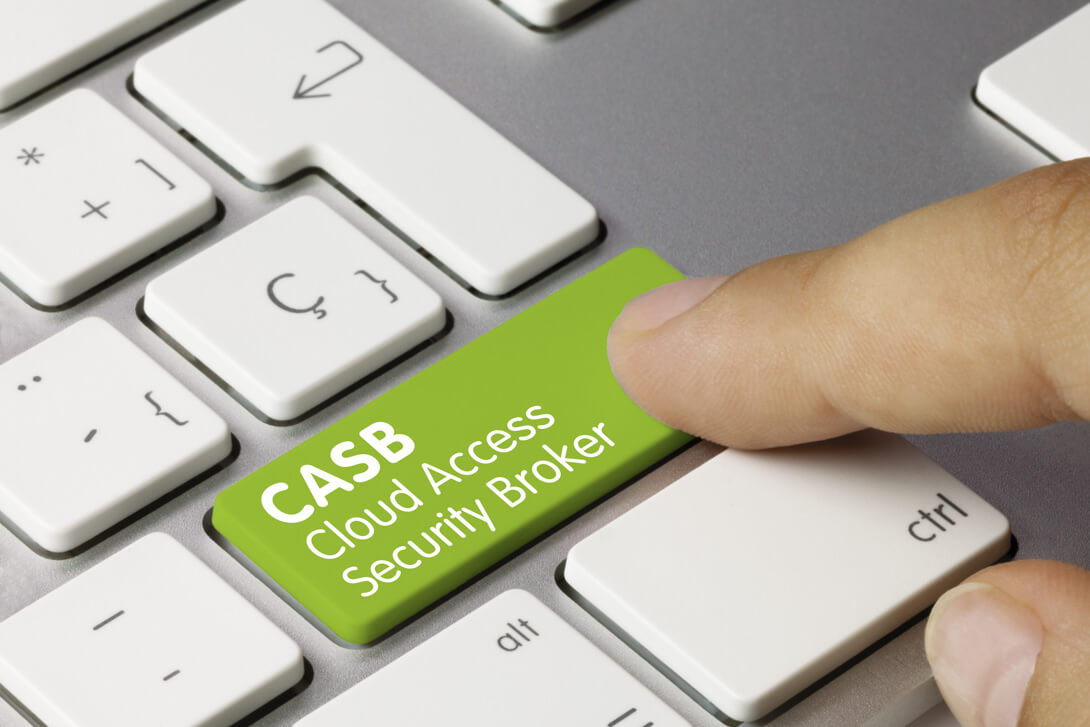Numerous organizations are performing Cloud Access Security Broker (CASB) innovation to ensure necessary corporate information is placed inside cloud applications. Among many other restrictions and investigator controls, a key element of CASBs is the capacity to encrypt information embedded inside cloud applications. Data streaming out of the company is encrypted. This blog designs meaningful engineering choices to be made preceding the execution of cloud encryption solutions through a CASB.
As the name proposes, a CASB acts as a gatekeeper between a solution and the cloud. It ensures the affectability of the information moving into the cloud while empowering constant controls to get to those assets.
The Three Different Types of Cloud Encryption:
- Gateway-delivered encryption: In this model, the CASB may incorporate your organization’s current essential administration arrangement through the Key Management Interoperability Protocol (KMIP) or give a cloud-based administration arrangement. In either case, the keys used to scramble your information never leave your CASB.
- Bring Your Key encryption: In this model, the keys are created and overseen by your organization and afterward are provided to the sender. BYOK permits you to deal with the lifecycle of the keys, which are then mutual with the sender. It incorporates denying and pivoting keys. The keys are then given to and used by the seller to unscramble the mentioned information for use by approved clients. CASB can be included as a specialist of the keys to rearrange, incorporate, and smooth out the procedure of crucial administration by permitting you to play out this organization straightforwardly in the CASB User Interface (UI).
- Vendor-provided encryption: In this model, the seller gives keys and critical administration. The organization might be given through UIs given by the seller. The CASB is not included.
Cloud Encryption Challenges
With the extension of varied applications, clients should consider having their specialist co-op or an outsider intermediary supplier deal with the encryption keys as opposed to the organization’s own IT office. It becomes worsened when an organization attempts to impart information to a colleague, yet does not need the assistant to have direct access to decoding keys.
Key rotation and destruction likewise turn out to be increasingly unpredictable when an organization is dealing with its keys for what can involve many documents. An outsider intermediary supplier can include a layer of assurance by keeping the keys separate from the scrambled information at a cloud supplier.
Few Benefits of Cloud Encryption
- Ease in cloud transition: Everybody is worried about moving sensitive information to the cloud, and most organizations accept the cloud is not as protected as their server center. Encryption can make it conceivable to use the framework’s advantages as help while still guaranteeing the protection of your information. You must ensure data is scrambled in flight while being handled and very still away. By holding control of your encryption keys, you are still in charge, in any event, when information has left your structure.
- Decommission: Organizations need to exploit the cloud for its expense and adaptability. Some portion of this worth is the capacity to turn up or decommission servers, as business needs change. In any case, what occurs if you need to leave your specialist organization? It would help if you were sure you could recover your information, yet you additionally need to ensure you’re not abandoning confidential information. It’s fundamentally unreasonable for a CSP to heal and erase each duplicate if you choose to leave.
- Secured data: If the specialist organization has your encrypted information and your encryption keys, it can easily access your data. Encoding your information in the cloud and holding your keys helps in avoiding this issue. In any case, numerous companies necessarily would prefer not to oversee encryption keys, regardless of how simple the key administration arrangement is. They have concerns about reinforcement, accessibility, and fiasco recuperation.
- Compliance bound: The Payment Card Industry (PCI) has precise rules to guarantee the assurance of cardholder information. We as a whole use Visas and need affirmation that our data is sheltered. Usually, encryption is a significant bit of the PCI DSS. But at the same time, there are HIPAA or HITECH, guidelines that order the security of medicinal services data. Indeed, encryption is an essential piece of the norm.
- Remote access: Numerous organizations have remote workplaces, which, by their very nature, are not secure. The open door for physical theft of devices and capacity is genuine. A considerable lot of these companies have delicate information sitting on these servers unprotected. Money-related organizers, charge bookkeepers, and other assistance associations all have essential information sitting in their workplaces. Furthermore, many similar associations fear information leaving the structure and setting off to the cloud. Encrypting data on these servers helps against robbery or inadvertent loss of data, and the present encryption arrangements have significantly more extensive abilities.
Closing Thoughts
Corporate information contains delicate client data and crucial protected innovation. Misusing data can bring about fines, suits, and brand harm. Encryption is one layer of security that can help shield organization information from unnecessary presentation.
Your information should be consistently scrambled in travel, yet for this situation, the cloud storage supplier gets access to the data. At that point, the cloud supplier stores the information and applies its encryption to make sure it is very still.

